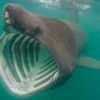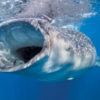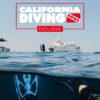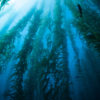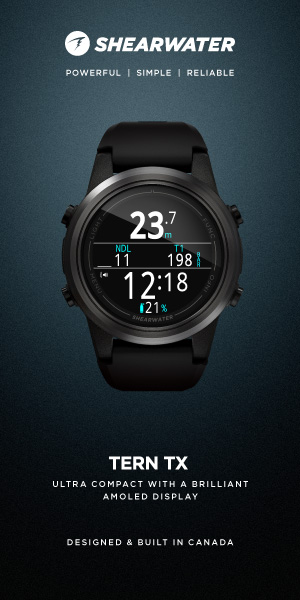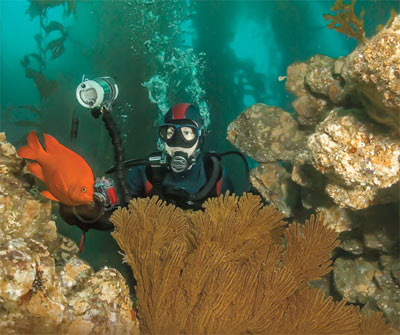Cdn:
As a dive store employee, avid photographer and former hunter, your recent article “One Less Angel. Who Cares?” struck me as I have experienced a similar event with a cabezon. Although not as majestic as an angel shark, I had the pleasure of spending some time photographing a very cooperative subject only to see it dead on the boat after the dive. Although there exists the possibility it was another cabezon, I was sickened that most likely the fish I interacted with was now dead on the fillet table.
Sincerely,
Jim Patterson
G’day Dale,
I read your article “One Less Angel. Who Cares?” regarding the hunting of the angel shark. I empathize with you. It’s a complex issue.
Man is, by nature, omnivorous and a hunter. I hunt and so do you, although both of us hunt less than we used to. Life is precious because our experience tells us it is.
I struggle a bit with hunting as well. For every life I take in the hunt, I give thanks. Here’s what I use for guidance:
* I do not kill anything unless I am going to eat all of it.
* I don’t grab or take a shot unless I know what I am shooting and feel sufficiently certain I can kill it as humanely as possible. If I’m not reasonably certain I can grab or shoot something without just injuring it, I don’t.
* I don’t take more than what I can reasonably consume; I’m hunting for myself, not the neighborhood or the office or my extended family, although they occasionally get to enjoy the fruits of my labors.
* I do give consideration to what is sustainable.
In principle, I do not have an issue with the taking of an angel shark — it being an ambush predator itself, but I do understand your feeling. There is great beauty in what we are privileged to experience in the ocean. I hope and pray that future generations are able to enjoy it as well.
Regards,
Jerry Pancake
Cdn:
I read your article about the angel shark and my disgust at the lack of ethics or sport in spearfishing was reinforced. I found it interesting that you had to qualify your position on hunting by adding “ethically” and “legally.” It is unfortunate that we, as divers, don’t assume that most hunters practice good ethics and follow the law. The actual experience that I have had, as an instructor on Catalina Island, as well as a licensed boat captain, is that more often than not what I saw of hunters was just the opposite. Generally, a lack of respect for other living things, and an ego that made them think that shooting the equivalent of pet dog or a cow underwater was something impressive. I also was aware of too many diving professionals that took ‘shorts,’ fished in the marine preserve and generally took whatever they wanted so long as everybody that observed it was ‘cool’ and would approve. I don’t hunt anything and haven’t for years because I am far more impressed by seeing the living creature than by the hunter that managed to kill it. It is unfortunate for our sport that this type of behavior is so common.
Susie Regeimbal
Dale:
I read your article on Angel Sharks in California, I don’t live in California, I am in Washington State, my local dive shop carries your magazine and I try to get it every month. I would like to dive Catalina or some other “local exotic area.”
About your article on the angel shark, I am an avid fisherman of just about every species of fish from crab to halibut, and as a diver I see a lot of really nice fish, big rockfish, cabezon, lingcod… we have a favorite spot called Octopus Hole just north of Hoodsport, WA. And During a dive there I came across a lingcod that was–no joke– 6 feet long. I have had a lot of people ask me to take them to it so they can shoot it. It makes me a little angry and sad that some a–hole would want to kill such a magnificent fish that all people should be able to see and admire, especially divers. So about your Angel Shark, I have never seen one, but I would love to, preferably alive and breathing in the water. I agree with your point of view; if someone needs to kill a fish, kill one that has a chance or even one who could defend itself and maybe kill the killer. I have no desire to spear a fish anymore than I would spear a diver. It’s supposed to be an activity of admiration, love, peace, and sharing. how can we share if they are all dead and eaten? I will continue to fish with hook and line, but not such a beautiful thing as your Angels.
Happy diving and hopefully have a chance to see your world underwater and experience your Angels. Pictures last for years
Sincerely,
Jason Sullivan
Vancouver, WA
Editor:
The January 2010 cover article “One Less Angel. Who Cares?” was a moving tribute to one shark, and I hope it convinces some of your readers to reconsider their views on how best to enjoy the environment. With the tools available today, the skill required to kill any animal is minimal. It is much more difficult to get a good photograph.
David M.
Dale,
It is indeed a sad state of affairs when “experienced hunters” willfully take advantage of our underwater treasures.
Perhaps the “killing” helped inflate some already deflated egos.
Lest we not forget, that we are but mere visitors to the underwater world.
Mark Plantz
Dear Dale,
I have been reading your publication for 17 years, and I have never been so touched by a story as your recent “One Less Angel: Who Cares?” (January/February 2010, CDN).
I care. Thank you for writing this story. Many of my friends also care.
One of the very first photos I ever took underwater was of an angel shark off the shore in Palos Verdes, in 1993. They are beautiful animals.
I am impressed how you established a trust with her to take her photo! That comes with experience.
Most of all, I am impressed with how you had the courage to write this article. I seem to recall that CDN used to advise hunters how to hunt better…but now…you recognize the plight of the oceans? I can tell you from personal experience, and as a vegetarian for 30 years, that it is NOT necessary to eat animals to thrive. I am very healthy and athletic. Also my personal experience from 8 years of teaching scuba in California…marine protected areas (MPA’s) make a positive difference.
You are a singularly influential voice in the area of scuba and of exploration of the underwater ecosystem. When you speak, people listen.
I applaud your dedication to the marine environments that we all love to explore and enjoy.
Thank you again for writing this article. There are many issues that the laws fail to address before it is too late, and we should, as divers and as custodians of the oceans, examine what we know to be true and search our souls before taking indiscriminately from the oceans just because it is legal. I believe that sustainable fishing occurred in 1950, and ever since then we have taken too much.
Keep up the good work.
Thank you,
Naomi Valenzuela
PADI MSDT 158706


